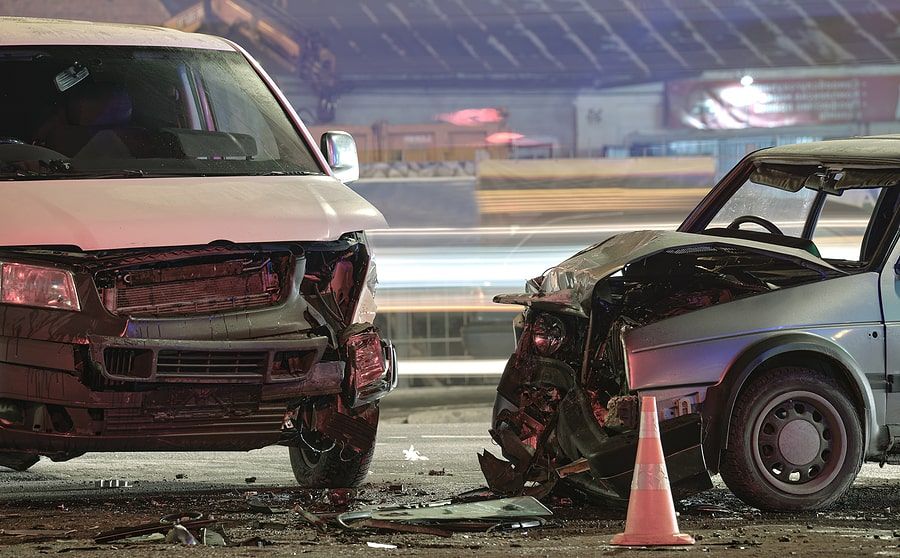A motorcycle accident can change your life in an instant. For many Long Island riders, the freedom of the open road comes with risks, and no one imagines they’ll be among the statistics. Unfortunately, brain injuries are one of the most devastating outcomes of motorcycle crashes, leaving victims to face physical, emotional, and financial challenges that can last a lifetime.
If you or a loved one has suffered a brain injury in a motorcycle accident, you don’t have to handle these challenges alone. A skilled Long Island Motorcycle Accident Lawyer can be your strongest ally, helping you seek justice and the compensation you deserve.
Types of Motorcycle Accident-Related Brain Injuries
Motorcycle accidents can result in a range of brain injuries, each with unique symptoms and challenges. Understanding these types of injuries is crucial for seeking appropriate medical care and building a strong legal case to recover damages. Below are the most common brain injuries associated with motorcycle accidents:

- Traumatic Brain Injuries (TBIs): These occur when a sudden impact or violent jolt disrupts normal brain function. TBIs range from mild concussions, which may cause temporary confusion or dizziness, to severe injuries like diffuse axonal injuries, which involve widespread brain damage and can lead to long-term disability or coma.
- Penetrating Brain Injuries: This type of injury happens when an object pierces the skull, such as debris from the accident or a sharp motorcycle part. Penetrating injuries often cause localized damage but can have widespread effects depending on the brain region affected.
- Coup-Contrecoup Injuries: These occur when the brain strikes the skull at the point of impact and rebounds to hit the opposite side. This dual impact can cause extensive damage, leading to cognitive, emotional, and physical impairments.
- Hypoxic or Anoxic Brain Injuries: A lack of oxygen to the brain, often resulting from respiratory complications during or after the accident, can lead to hypoxic (reduced oxygen) or anoxic (complete lack of oxygen) injuries. These can cause permanent brain damage or severe functional impairments.
Recognizing the type of brain injury is vital for pursuing the right medical and legal strategies to support recovery and justice.
Symptoms and Long-Term Consequences
Brain injuries often affect cognitive functions, memory, emotions, and physical abilities. Victims may experience chronic headaches, mood swings, difficulty concentrating, or loss of motor skills.
Long Island residents have access to exceptional medical facilities for treatment, such as Stony Brook University Hospital and Good Samaritan Hospital, where specialists can provide comprehensive care for traumatic brain injuries.
Common Causes of Motorcycle Accidents Leading to Brain Injuries
Motorcycle accidents are inherently more dangerous than other motor vehicle collisions due to the lack of physical protection for riders. When a motorcycle accident occurs, brain injuries are among the most severe outcomes, often resulting in long-term consequences for victims and their families. Some common causes of motorcycle accidents include:
Driver Negligence
The majority of motorcycle accidents stem from the negligence of other drivers on the road. Drivers often fail to notice motorcycles due to their smaller size and reduced visibility. Common negligent behaviors include:

- Distracted Driving: Activities like texting, eating, or using a GPS device can cause drivers to miss seeing motorcyclists in their blind spots.
- Speeding: Exceeding the speed limit reduces reaction times, making it harder for drivers to avoid collisions with motorcycles.
- Failure to Yield: Drivers may misjudge the speed or distance of an oncoming motorcycle and fail to yield at intersections or while making left turns, a common scenario in accidents along high-traffic roads like Hempstead Turnpike or Montauk Highway.
Poor Road Conditions
Long Island motorcyclists face additional risks from hazardous road conditions. Potholes, uneven pavement, debris, and poorly maintained roads can cause a rider to lose control. For example, the Long Island Expressway (LIE) is notorious for its heavy traffic and construction zones, which can create dangerous conditions for motorcyclists. Local municipalities are responsible for maintaining safe roads, and failure to do so can result in liability for accidents caused by these hazards.
Defective Motorcycle Equipment
Faulty motorcycle components can lead to catastrophic accidents, even for experienced riders. Common issues include:
- Brake Failures: A malfunctioning brake system can prevent a rider from avoiding a collision.
- Tire Defects: Blowouts or worn treads can cause loss of control, particularly at high speeds.
- Helmet Failures: Defective or improperly manufactured helmets may not provide the protection they are designed for, exacerbating the severity of brain injuries.
Manufacturers of defective parts or equipment may be held accountable under product liability laws.
Why You Need a Lawyer After a Brain Injury
After suffering a brain injury, dealing with the legal and insurance landscape alone can feel overwhelming. A lawyer protects your rights and fights for the compensation you need to rebuild your life. Here’s how a lawyer can help with your motorcycle accident claim:
Proving Liability
Proving liability in a motorcycle accident case can be a complex process, especially when brain injuries are involved. An experienced Long Island Motorcycle Accident Lawyer will thoroughly investigate the accident, gathering critical evidence such as police reports, eyewitness accounts, and traffic camera footage if available. For accidents on Long Island, this might include obtaining surveillance footage from local businesses near accident-prone areas like the Long Island Expressway or Sunrise Highway.
They can also work with experts in accident reconstruction to demonstrate how the crash occurred. By establishing fault, your lawyer can hold the negligent driver or other responsible parties accountable for your injuries, ensuring you have the foundation needed to seek compensation.
Determining Negligence
New York follows a pure comparative negligence rule, meaning you can recover damages even if you are partially at fault for the accident. However, the amount you recover may be reduced by your percentage of fault. For example, if you are found 20% responsible, your compensation will be reduced by 20%.
An experienced attorney will work to minimize your percentage of fault by building a compelling case that emphasizes the other party’s negligence. This could involve showing that the at-fault driver was distracted, intoxicated, or otherwise reckless, all while protecting your rights under New York law.
Calculating Damages
Brain injuries often result in extensive financial and emotional losses, making an accurate calculation of damages crucial. Your lawyer will account for both economic damages—like medical bills, rehabilitation costs, and lost income—and non-economic damages, such as pain, suffering, and emotional trauma. For Long Island residents, this might also include estimating the cost of long-term care at local facilities or future medical expenses tied to your injury.
By thoroughly documenting your losses, your lawyer will ensure that your claim reflects the true impact of the injury on your life and finances.
Navigating Insurance Claims
Insurance companies are notorious for offering low settlements that do not fully cover a victim’s damages. Whether dealing with companies like Allstate or State Farm, a lawyer can level the playing field. They will handle all communication with the insurer, ensuring you don’t inadvertently say something that could weaken your claim.
From negotiating a fair settlement to fighting denied claims, your lawyer’s experience with Long Island insurers can make a significant difference in the outcome of your case.
Preparing for Litigation
If a fair settlement cannot be reached, your lawyer will prepare to take your case to trial. This involves filing the necessary paperwork, preparing witnesses, and presenting evidence in court. With experience in Suffolk and Nassau County courthouses, a skilled Long Island attorney can guide you through the legal system effectively. They will represent your interests with determination, ensuring you have the strongest possible case if your claim goes before a judge or jury.
Building a Strong Case with Experts
Expert testimony can strengthen your case significantly. A lawyer will collaborate with medical professionals to document the extent of your brain injury and its impact on your life. They may also work with life care planners to project future costs associated with your injury and accident reconstruction specialists to demonstrate how the crash occurred. This comprehensive approach provides clear, convincing evidence to support your claim.
Understanding Local Laws and Resources
Navigating the legal landscape of Long Island requires in-depth knowledge of state and local laws. A Long Island-based attorney understands unique regional factors, such as high-risk roads like Montauk Highway or accident hotspots in Hempstead. They will also leverage local resources, including medical experts and rehabilitation centers, to build a compelling case tailored to your circumstances.
Advocating for Emotional and Financial Stability
The aftermath of a brain injury is not only physically taxing but also emotionally and financially overwhelming. A lawyer can help you access resources such as local support groups or nonprofits. Additionally, they can assist with securing financial stability through claims and settlements, allowing you to focus on recovery without the constant worry of mounting bills.
By partnering with a dedicated lawyer, you can ensure that every aspect of your recovery—legal, financial, and emotional—is handled with care and expertise.
The Lawyer’s Role in Your Recovery Process
A lawyer’s job goes beyond filing paperwork; they advocate for you every step of the way.
Navigating Insurance Claims
Insurance companies often aim to minimize payouts. Your lawyer will:
- Handle negotiations with insurers like Allstate or State Farm, which frequently handle Long Island claims.
- Fight against lowball settlement offers that don’t cover the full extent of your damages.
Litigating When Necessary
If a fair settlement isn’t possible, your lawyer will prepare to take the case to trial. This includes gathering expert testimony and presenting evidence in Suffolk County or Nassau County courthouses.
Collaborating with Experts
A strong case often relies on expert input, such as:
- Medical Professionals: To verify the extent of your injuries.
- Accident Reconstruction Specialists: To demonstrate how the accident occurred and establish liability.
Building a Strong Case with Local Insights
Local knowledge can make a significant difference in the outcome of your case.
Using Local Resources
An experienced Long Island lawyer will understand:
- The traffic laws specific to New York.
- Accident hotspots like Sunrise Highway and high-risk areas near Hempstead Turnpike.
Community Awareness
Familiarity with Long Island’s unique traffic patterns and popular motorcycle routes allows lawyers to anticipate potential challenges and strengthen your case.
Addressing Common Questions About Motorcycle Accident Brain Injuries
Here are answers to some of the most frequently asked questions about motorcycle accident brain injury claims.
How much is my case worth?
The value of your case depends on factors such as:
- The severity of your injuries.
- The degree of negligence by the at-fault party.
- The amount of insurance coverage available.
What if I wasn’t wearing a helmet?
New York law requires motorcyclists to wear helmets, and failing to do so may reduce your compensation. However, you may still recover damages if the other party was at fault.
Coping with the Emotional and Financial Toll
Brain injuries don’t just affect victims; they impact entire families. Here’s how Long Island resources can help.
Support Options
Therapy and support groups, such as those provided by the Long Island Head Injury Association, offer emotional support and practical advice. Rehabilitation services help victims regain independence and improve their quality of life.
Managing Medical Bills
Coping with the financial burden of a brain injury can be overwhelming. A lawyer can guide you through securing compensation to cover ongoing expenses, from hospital bills to specialized care.
Seeking Justice After a Motorcycle Accident
Brain injuries from motorcycle accidents are life-altering, but you don’t have to face the aftermath alone. With a Long Island Motorcycle Accident Lawyer by your side, you can focus on healing while they handle the legal complexities of your case. They will fight to hold negligent parties accountable, navigate the insurance process, and pursue the maximum compensation you deserve.
If you or a loved one has suffered a brain injury in a motorcycle accident, contact Rosenberg & Gluck, LLP. With over 100 years of combined experience, we have the resources and dedication to help Long Island residents rebuild their lives after catastrophic injuries. Contact us today at (631) 451-7900 or through our online form for a free and confidential consultation.









